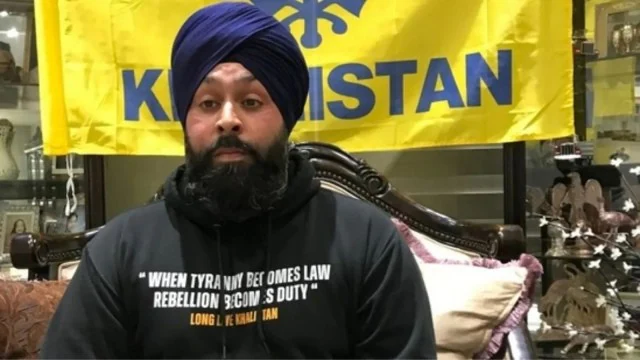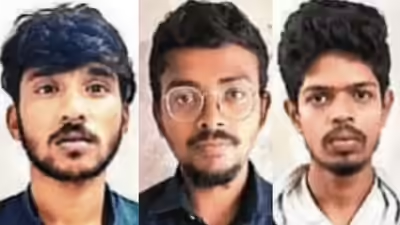Punchline: The arrest of Nijjar’s successor deepens the spotlight on Khalistani networks and Indo-Canadian tensions.
Inderjit Singh Gosal, the man believed to have taken over the Khalistani leadership mantle in Canada after the killing of Hardeep Singh Nijjar, has been arrested by Canadian authorities. Gosal, 36, was taken into custody in Whitby, Ontario, on charges related to firearms offences, including careless use of a handgun and possession of restricted weapons. He was presented before a Canadian court and remains under custody while investigations continue.
Gosal is reported to be a close aide and former bodyguard of Gurpatwant Singh Pannun, the chief of Sikhs for Justice (SFJ), which India has banned as a terrorist organisation. After Nijjar’s killing in June 2023, Gosal was said to have stepped in to oversee the Khalistan Referendum campaign in Canada, mobilizing diaspora support and coordinating with international networks. His rise was seen as critical in keeping SFJ’s influence intact among pro-Khalistan groups abroad.
Canadian authorities have stated that Gosal’s arrest was made on firearms-related charges, including unsafe storage and handling of restricted weapons. However, Indian security agencies see this as a breakthrough in curbing the Khalistan movement overseas, as Gosal was among the more visible figures sustaining SFJ’s activities. The arrest adds to the tension between Ottawa and New Delhi, as India has long accused Canada of turning a blind eye to extremists operating under the garb of political activism.
The timing of the arrest is also significant. Indo-Canadian relations have been under strain since Prime Minister Justin Trudeau alleged in September 2023 that Indian agents may have been linked to Nijjar’s killing—an accusation strongly denied by New Delhi. The controversy led to diplomatic expulsions and a freeze in bilateral cooperation. Gosal’s detention now reopens questions about Canada’s ability to act against separatists, while also giving India a reason to press for stricter action against other SFJ leaders.
Community reactions remain divided. Supporters of Khalistan see Gosal’s arrest as suppression of political expression, pointing to what they call Canada’s growing submission to Indian diplomatic pressure. On the other hand, many in India and sections of the diaspora welcome the move as overdue recognition that extremist elements pose genuine security risks. Videos and images of Gosal alongside Pannun at rallies and fundraising events have resurfaced online, fueling the debate further.
Observers believe Gosal’s arrest could weaken SFJ’s ability to mobilize the diaspora, but it may also create a leadership vacuum that encourages new hardliners to step up. The arrest also underscores a growing reality: diaspora activism is now a frontline issue in India-Canada relations, with direct consequences for trade, diplomacy, and even people-to-people ties.
For Ottawa, balancing law enforcement with freedom of speech protections will remain a tightrope walk. For New Delhi, Gosal’s arrest will likely be used as leverage to demand more accountability from Canada on curbing extremist networks. With both governments under pressure from their domestic constituencies, the case of Inderjit Singh Gosal is set to become more than just a courtroom matter—it is a test of political will, diplomacy, and the fragile trust between two nations.
In essence, Gosal’s arrest is not just about firearms charges in Canada. It is about the future of Khalistani activism, the credibility of Canadian law enforcement, and the uneasy balance of India-Canada relations in an increasingly polarized world.
FOR MORE BLOGS – beyondthepunchlines.com

 Add to favorites
Add to favorites








